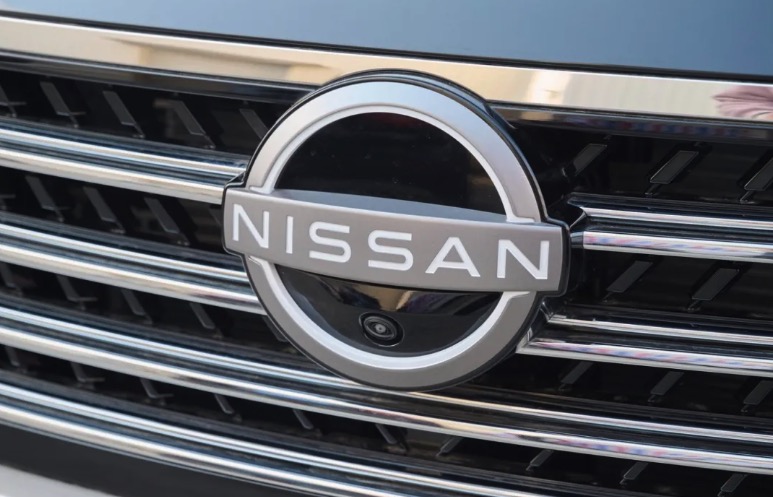On July 29 local time, the German antitrust regulator, the Federal Cartel Office, announced that it had approved the establishment of a joint venture company between the German Volkswagen Group and the American new energy vehicle force Rivian Automotive, and at the same time allowed Volkswagen to acquire a minority stake in Rivian. Andreas Mundt, director of the German competition regulator Bundeskartellamt, said in a statement: “There is no serious competition problem that needs to be worried about in the cooperation between the two.”
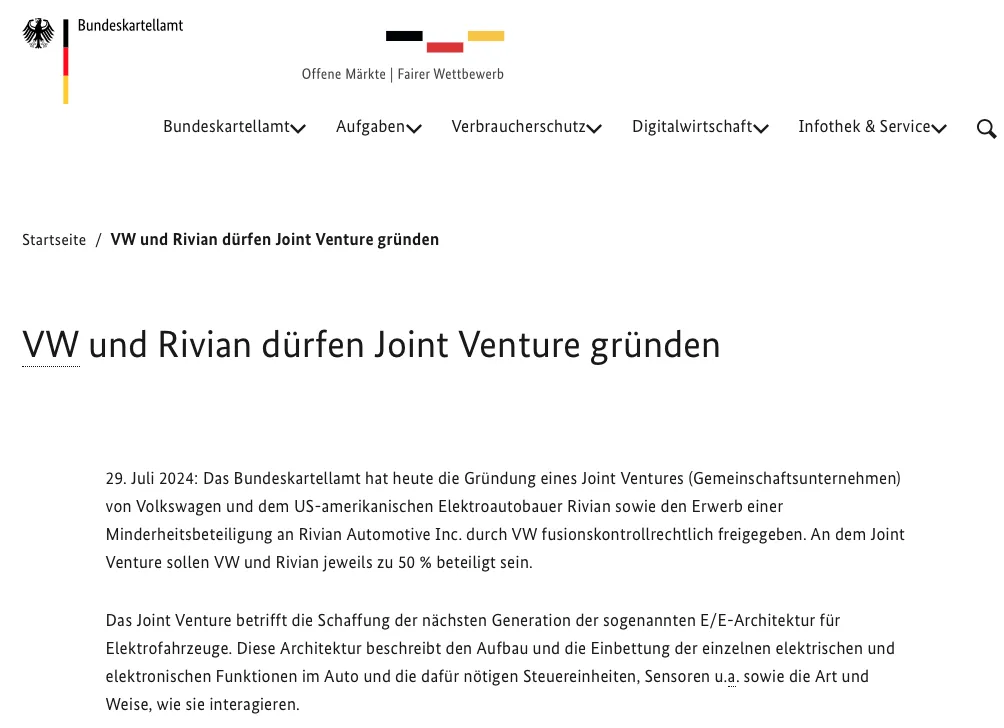
The cooperation between Volkswagen and Rivian started in June this year. At that time, the two sides planned to jointly establish a joint venture company to create the next-generation electrical architecture and first-class software technology. Based on the plan of the strategic partnership, the Volkswagen Group plans to invest 5 billion US dollars (about 36.3 billion yuan) in Rivian, of which 1 billion US dollars (about 7.3 billion yuan) is an immediate investment, and the remaining 4 billion US dollars (about 29.1 billion yuan) will be added successively in 2026.
Compared to the German manufacturer Volkswagen, Rivian from the American new energy vehicle brand is not well known in the domestic market. Rivian was once regarded as the biggest competitor of Tesla. However, Rivian’s position in the auto market is far inferior to that of Tesla. At the same time, like most of the current new energy vehicle companies, Rivian is also in a loss state.
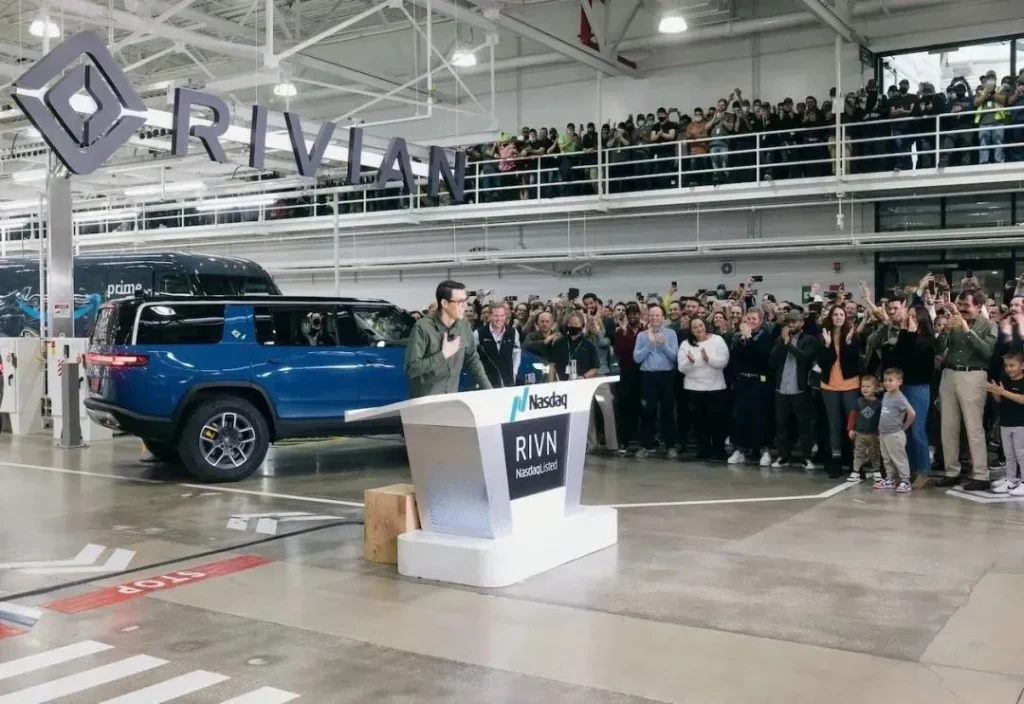
The financial report shows that in 2023, Rivian’s revenue was 4.434 billion US dollars (about 31.896 billion yuan), an increase of 167.4% year-on-year, setting a historical new high, but the loss was 5.432 billion US dollars (about 39.076 billion yuan). Against this background, Rivian also has to reduce costs through layoffs. In April this year, Rivian announced that it would lay off 1% in order to reduce costs in the case of generally slowing demand in the electric vehicle market; before this, in February, when Rivian released the financial report for the fourth quarter of 2023, Rivian announced that due to the slowdown in the demand for electric vehicles and the reduction of costs, Rivian would lay off 10%. And the most intuitive reason behind the layoffs is the lack of money.
“Auto Industry Focus” believes that this investment of about 36 billion yuan by Volkswagen is undoubtedly a timely help for Rivian. Currently, Rivian has not yet achieved profitability. As of the first quarter of this year, Rivian has about 8 billion US dollars in cash on its books and is expected to use about 9 billion US dollars from 2024 to 2026. With the support of this fund from Volkswagen, it may be able to relieve the cash flow pressure currently faced by Rivian and help improve its production capacity.
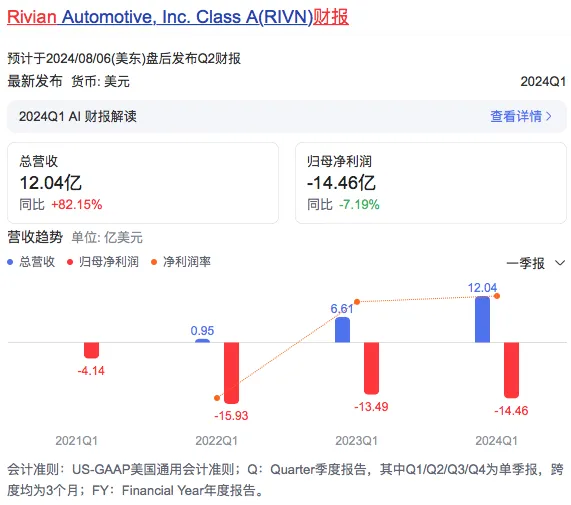
In March this year, Rivian released a new medium-sized platform, which is the basis of the R2 and R3 product lines. Among them, the R2 is Rivian’s brand-new medium-sized SUV, which adopts a five-seat design and has a starting price of about 45,000 US dollars (about 323,600 yuan), and it is expected that the car will begin to be delivered in the first half of 2026. Regarding the production and sales targets for the new fiscal year, Rivian expects to produce 57,000 cars in the 2024 fiscal year, which is basically the same as the 2023 production, but far lower than the 80,000 expected by analysts. By contrast, in 2023, Rivian’s cumulative production was 57,232 units; the cumulative delivery of 50,122 new cars was significantly lower than the market expectation.
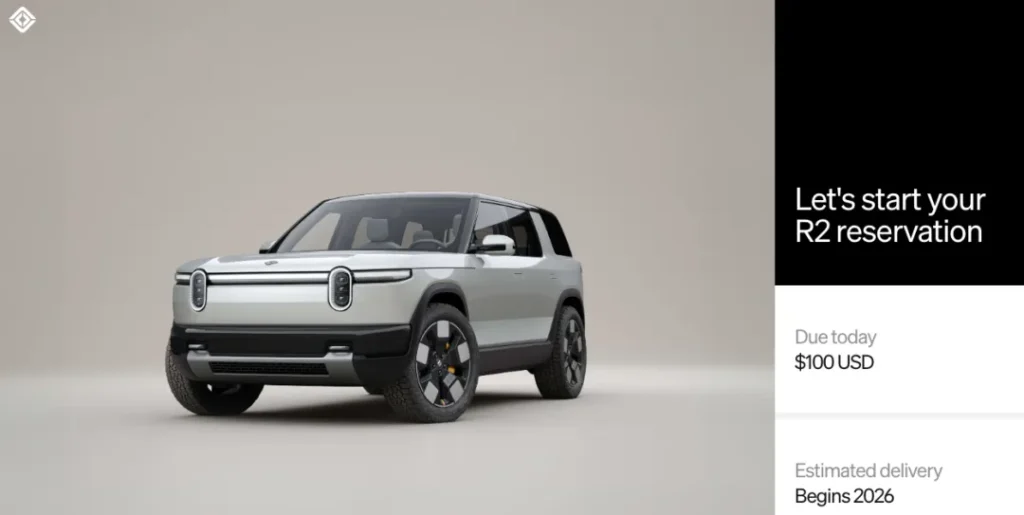
The latest financial report shows that in the first quarter of this year, Rivian cumulatively delivered 13,588 new cars. As of the close of the US Eastern time on July 29, the Rivian share price closed at 16.300 US dollars, an increase of 0.56%, and the total market value was 16.24 billion US dollars.
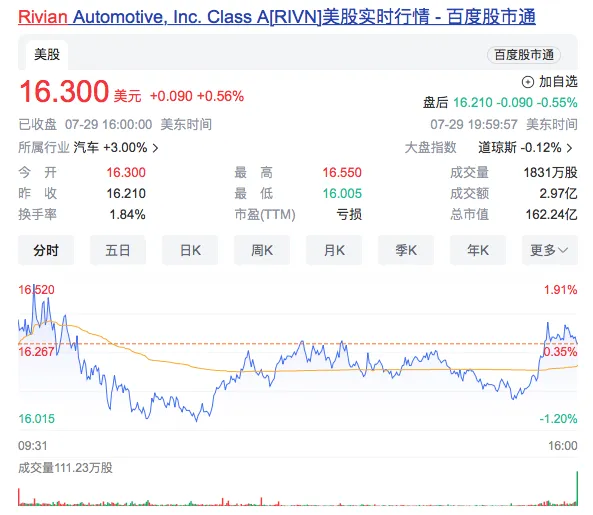
It is understood that after the cooperation between Volkswagen and Rivian, it will accelerate the software development of the two companies and reduce the vehicle cost. As for whether the two sides will cooperate to build cars, Rivian said previously: “There is currently no plan to cooperate with Volkswagen to produce cars.” But even if they do not cooperate to build cars, this transaction is beneficial for both sides. For Volkswagen, it can use Rivian’s software and electrical technology in electric vehicles to accelerate the strategic layout of electric vehicles; for Rivian, it can use the obtained investment funds to produce low-cost electric models and improve production capacity.
